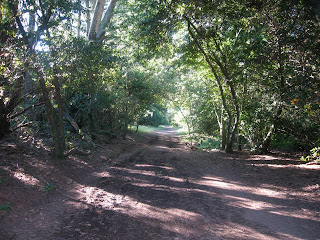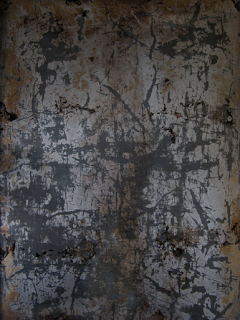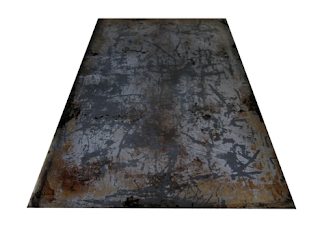 At the factory or in the mountains, how great it feels to get one's line-of-sight directed heavenward.
At the factory or in the mountains, how great it feels to get one's line-of-sight directed heavenward.
Thursday, July 30, 2009
vanishing point in the sky
 At the factory or in the mountains, how great it feels to get one's line-of-sight directed heavenward.
At the factory or in the mountains, how great it feels to get one's line-of-sight directed heavenward.
Friday, July 24, 2009
gimme scale 2
 Take a look at this floor plan. Absent close reading, it seems like a nice idea. Once in the door (at the bottom,) one can choose between watching some big-screen content in the lounge/snack area at the right, or sitting down at one of the tables at the left. The smaller spots on the floor must be the chairs.
Take a look at this floor plan. Absent close reading, it seems like a nice idea. Once in the door (at the bottom,) one can choose between watching some big-screen content in the lounge/snack area at the right, or sitting down at one of the tables at the left. The smaller spots on the floor must be the chairs.This document does give information about scale. Someone had dutifully measured the room and the bookcase and notated it on the plan.
However, someone else decided what the room would contain, and without looking at the size of the wall on the plan, sketched out their idea while engaged in some wishful visual thinking!!
When they called and sent me their plan sketch, I looked at the relation of furniture placement first. I, too, began to visualize a room based on what the rectangles-as-furniture recalled from my mind's cache of Lounges I Have Drawn...until I checked the tiny size annotations. The dream ended quickly. My client awakened a different way when they visited the actual space, and phoned in a panic, "I just saw the site -- it's TINY!!!"
If one looks closely, the room has less than 130 sf. If all that furniture were to fit in the room, the largest of the chairs would have a 5" seat, and the sofa would be less than one foot deep. Bring in the dwarves...
Monday, July 20, 2009
annotation
storage rods for Mother Jones
illustration, ©J.F.Mahoney
A bright young electronics engineer is in town for conferences and study. He and his colleagues design and create objects that can only be seen with an electron microscope! A different kind of virtual viewing, this tiny 3-dimensionality! I asked him if he takes notes on his laptop or on paper. He said back in Japan he takes notes using a keyboard, but here in the US, he started using pencil on lined paper while he was first settling in, because his baggage was delayed. When he reviewed his handwritten notes, the thinking provoked by seeing his own handwriting felt "more creative". He decided to take notes by hand the whole summer.
Thursday, July 16, 2009
reversal, relapse
Wednesday, July 15, 2009
freehand exploded plan oblique
 A freehand exploded plan oblique sketch made with layers of trace and printed using ARC Reprographic's old-school, blueprint machine before they sold it for scrap! Now this look is available on the styles menu of Sketchup. Using its line style menu, one can probably get this hand-made feel as well!
A freehand exploded plan oblique sketch made with layers of trace and printed using ARC Reprographic's old-school, blueprint machine before they sold it for scrap! Now this look is available on the styles menu of Sketchup. Using its line style menu, one can probably get this hand-made feel as well! This project is on 16th Street at the base of Potrero Hill in SF, renovation of a deco-style building. A helicopter lowered the space frame into the roofless, squat "tower" of the building at the crack of dawn one cold morning. The resulting sandstorm of urban street grit wrecked all our film cameras.
beautiful book
 In addition to the mysteries made visible in this Vince Collins spot, another early influence for me was exploded illustrations of mechanical parts, cars and engines. My dad worked for GM and car imagery was never far from reach. In the early part of my career, I had the pleasure losing myself in the making of these, both ruled and freehand. The best were for Austrian architect Hanns Kainz'projects.
In addition to the mysteries made visible in this Vince Collins spot, another early influence for me was exploded illustrations of mechanical parts, cars and engines. My dad worked for GM and car imagery was never far from reach. In the early part of my career, I had the pleasure losing myself in the making of these, both ruled and freehand. The best were for Austrian architect Hanns Kainz'projects.At the AIA convention this spring, I perused a doorstop-weight tome called Architectural Geometry from Bentley Institute. It's a geeky delight, full of complex shapes reduced to their pure geometry and made 2D visible. Thanks, digital age! That really scratches an itch.
Tuesday, July 14, 2009
reversal
Saturday, July 11, 2009
scale, proportion
Friday, July 10, 2009
more deep questions
 Is this more deep than the last photo? Just because of the trail width? The bike tracks? These scenes are hard to translate to the flat surface in a drawing or painting. Is so much foreground necessary to draw attention to the far distance? What we see in this photo is already an optic translation of 3D to 2D. It doesn't convey how "deep" this felt to me as I experienced this space. As a means for discussing comparative sense of depth in 2D, this photo works.
Is this more deep than the last photo? Just because of the trail width? The bike tracks? These scenes are hard to translate to the flat surface in a drawing or painting. Is so much foreground necessary to draw attention to the far distance? What we see in this photo is already an optic translation of 3D to 2D. It doesn't convey how "deep" this felt to me as I experienced this space. As a means for discussing comparative sense of depth in 2D, this photo works.
non-linear perspective questions
 Can you imagine how it might have felt to think about recording, narrating or depicting places of importance or sentimentality before there were railroad tracks or engineered walls? It's tempting to think what cave paintings might tell. Despite there being nothing linear in this photo, it still has depth cues. Could one formalistically seek depth cues in ancient images? Let's not go there today.
Can you imagine how it might have felt to think about recording, narrating or depicting places of importance or sentimentality before there were railroad tracks or engineered walls? It's tempting to think what cave paintings might tell. Despite there being nothing linear in this photo, it still has depth cues. Could one formalistically seek depth cues in ancient images? Let's not go there today.Monday, July 6, 2009
depth cues
 Seen flat, it might be a painting from the 1950s. When given a minimal depth cue, it might be sculpture from the late 1970s. Or a cookie sheet.
Seen flat, it might be a painting from the 1950s. When given a minimal depth cue, it might be sculpture from the late 1970s. Or a cookie sheet.
Sunday, July 5, 2009
when it rains, it pours
 The current batch of perspectivists at UC Extension recently reverse-engineered some photos. Reverse engineering is the process of analyzing a subject system to create representations of the system at a higher level of abstraction. A photograph is a representation of the system of perspective construction. The camera uses a station point, line of sight and picture plane; it has a field of view and focuses along a line of sight. These geometric abstractions are common to both perspective and still photography. Our perspectivists located abstract components in the photographs and roughly sketched out plan versions of the scene the camera most likely faced.
The current batch of perspectivists at UC Extension recently reverse-engineered some photos. Reverse engineering is the process of analyzing a subject system to create representations of the system at a higher level of abstraction. A photograph is a representation of the system of perspective construction. The camera uses a station point, line of sight and picture plane; it has a field of view and focuses along a line of sight. These geometric abstractions are common to both perspective and still photography. Our perspectivists located abstract components in the photographs and roughly sketched out plan versions of the scene the camera most likely faced.Google SketchUp simulates the same kind of reverse engineering on photos to get them to merge their represented reality into the virtual reality of SketchUp. The programmers then had to find a way to make visible the abstract components WITHIN its 3D modeling software, since the software itself, being no more like sight than photography, is a representation of the system of perspective drawing. Looks a lot like the perspectivists' work!
 The whole process reminds me of staring at the rainy-day illustration on the Morton Salt container. A girl was holding an umbrella and a container of Morton Salt, which had the same illustration with a smaller girl, smaller container, with yet another illustration of a girl with an umbrella and an illustrated container. Or so I imagined.
The whole process reminds me of staring at the rainy-day illustration on the Morton Salt container. A girl was holding an umbrella and a container of Morton Salt, which had the same illustration with a smaller girl, smaller container, with yet another illustration of a girl with an umbrella and an illustrated container. Or so I imagined.
Saturday, July 4, 2009
Friday, July 3, 2009
fresh, green, organic, unprocessed

Those were some of the keywords of a look-and-feel assignment for a retail food service client. The job was not to redesign the store (in-house designers would do that) but to create a visual from those keywords in an overall impression of the store. Vague direction, vague pictures. Fresh blood for the design crew. Happy job.
more on fog



How pleasant and mysterious it is to pull a perspective drawing out of charcoal-rubbed fog. For some reason, I had the presence of mind to document a few steps in this concept sketch for a Liz Claiborne retail interior. My favorite is the first one. Shoulda stopped there, although I like how the light firmed up in the third.
Wednesday, July 1, 2009
wetmosphere
 |
| 2009 LHS webcam vs. 1845 Turner sunrise |
Subscribe to:
Comments (Atom)




